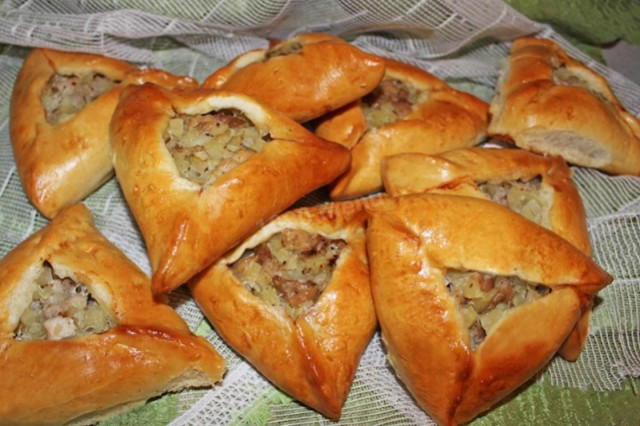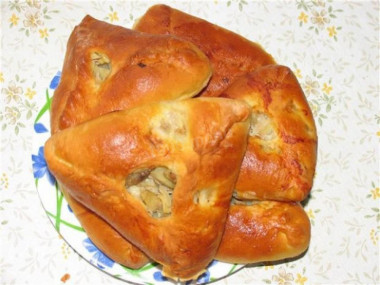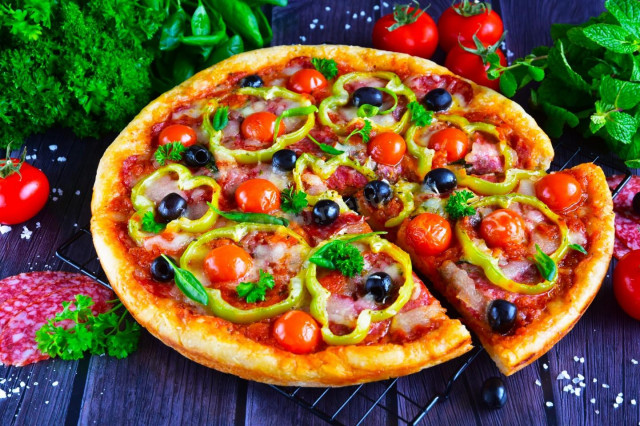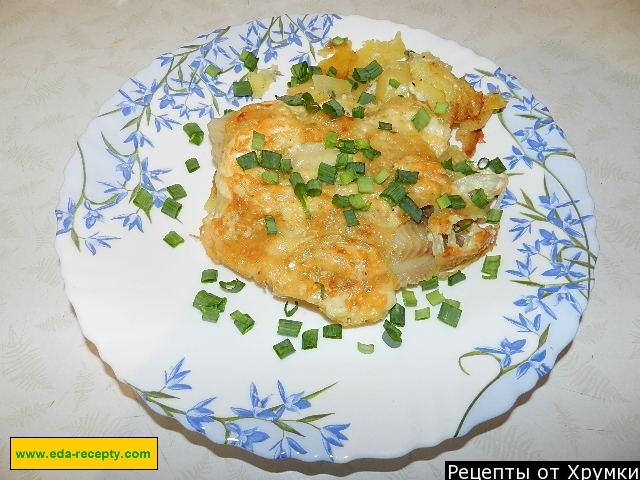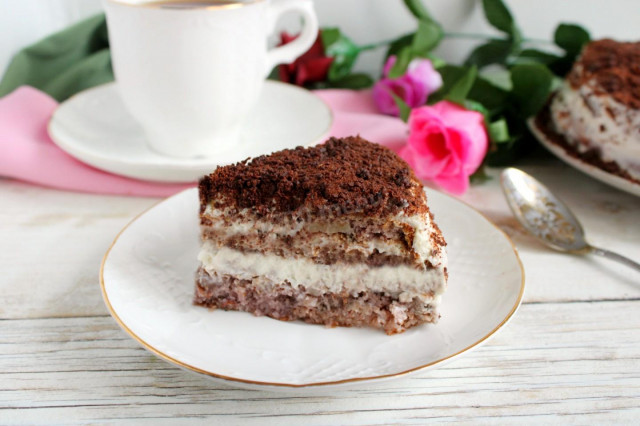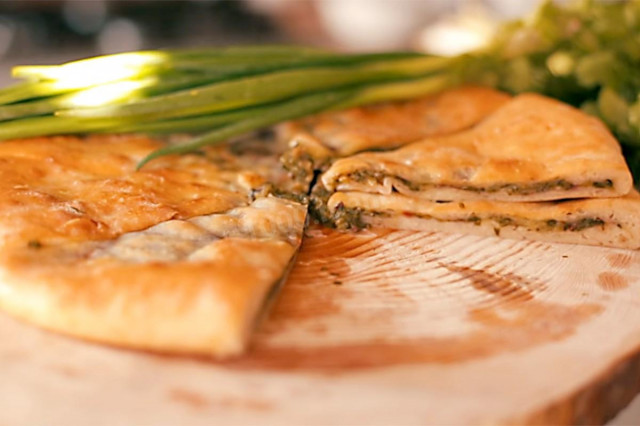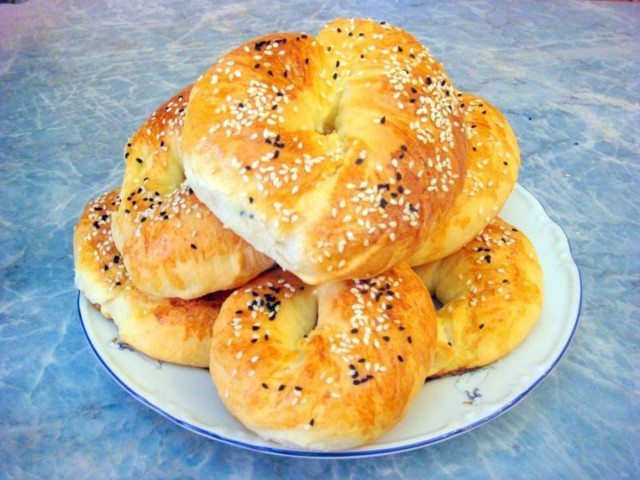Composition / ingredients
Step-by-step cooking
Step 1:
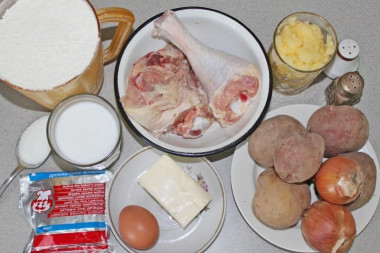
How to cook echpochmak? Prepare the necessary products. Any suitable meat, if necessary, defrost in advance. At meney it's chicken, but in the original recipe it's mutton. Margarine can be replaced with butter. Take the products for the test at room temperature. Sift the flour through a fine sieve.
Step 2:
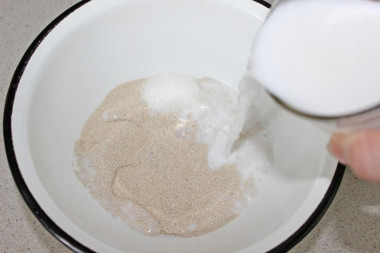
In a suitable bowl, dilute the yeast with warm water or milk. Add sugar, stir.
Step 3:
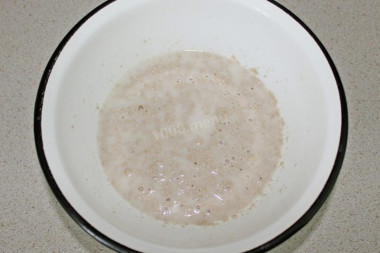
Leave the sourdough to rise. A foam cap should appear on it. This means that the yeast is alive, active. If you are confident in the quality of your yeast and you have them for adding directly to the flour, you can skip the step with the dough.
Step 4:
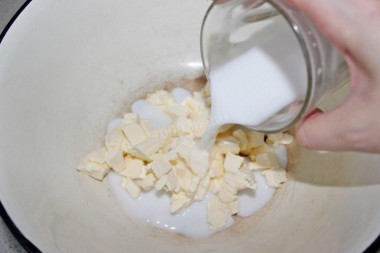
In a deep and wide bowl for kneading dough, cut warm margarine into pieces. Pour in the milk.
Step 5:
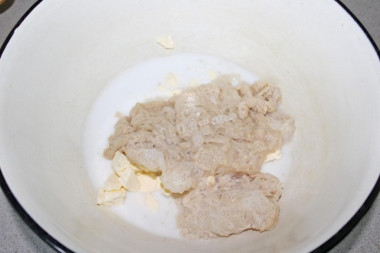
Add the risen sourdough.
Step 6:
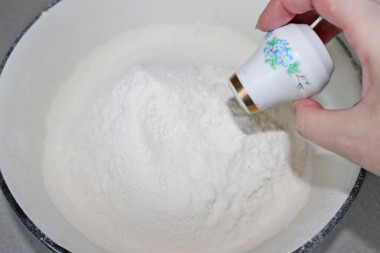
Add the sifted flour and salt. Start kneading the dough. Focus on its appearance and do not add all the flour at once, preferably in parts. You may take more or less flour.
Step 7:
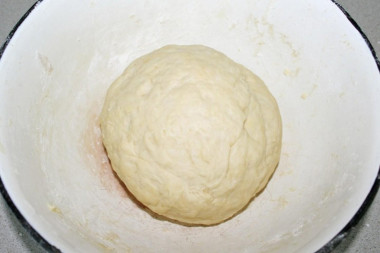
At first, the dough may be sticky, this is normal. Roll it into a ball and transfer it to a warm place for lifting. After lifting, start kneading the dough. If it doesn't cling to your hands, then it's ready. Look at the consistency, maybe you will need to add more flour.
Step 8:
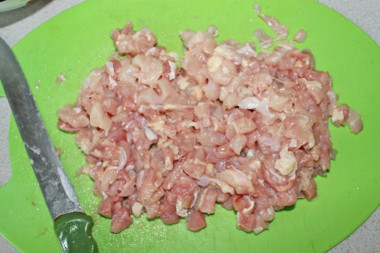
Prepare the filling. Clean the meat, wash, dry and cut into small cubes.
Step 9:
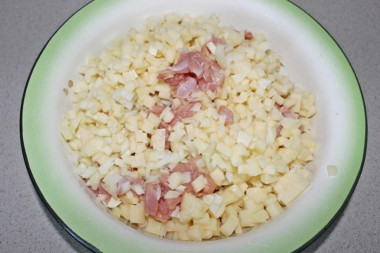
Peel, wash and dry the potatoes. Cut it into the same cubes. Finely chop the onion. You can grate it on a grater.
Step 10:
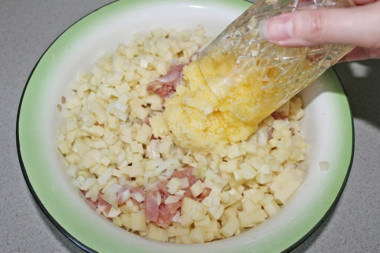
Add melted butter to the filling.
Step 11:
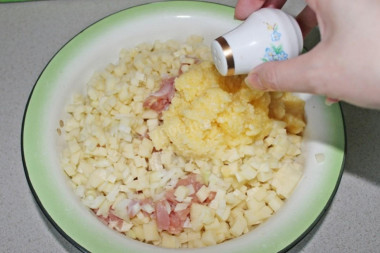
Season with salt and pepper.
Step 12:
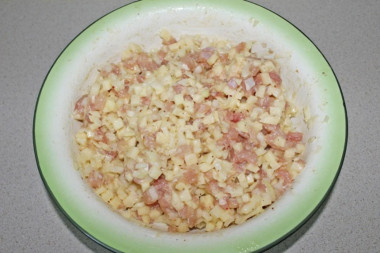
Mix the minced meat well. You can leave it for an hour so that the meat is saturated with juices.
Step 13:
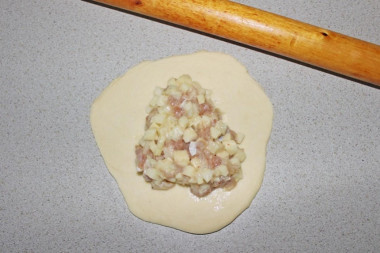
Divide the dough into pieces. Roll out each piece into a flat cake. Put the filling in the center of the tortilla and fold the echpochmaki in the form of triangles. The more filling, the juicier the pies will be.
Step 14:
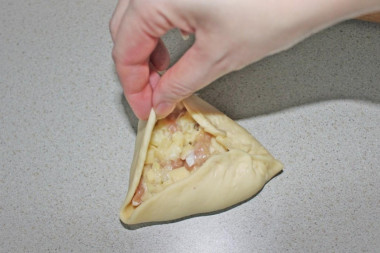
Wrap the edges to the middle and pinch, leaving a hole in the center.
Step 15:
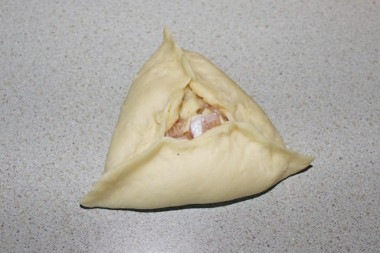
This is how the echpochmak should turn out.
Step 16:
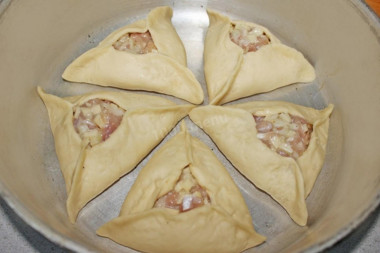
Grease a baking sheet with oil, put the echpochmaki on it, leaving a place between them, as the dough rises.
Step 17:
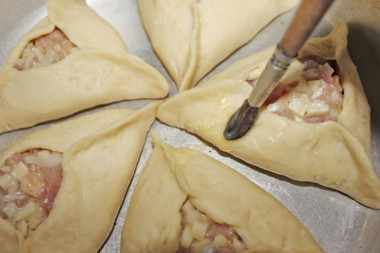
Lubricate the echpochmaki with beaten egg.
Step 18:
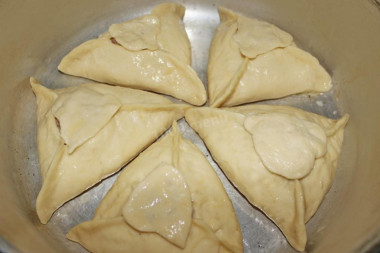
Cover the holes in the middle with pieces of dough so that the melted butter does not spray, but impregnates the filling. Place the baking sheet in a preheated 180C oven for 30 minutes. Determine the exact time by your oven.
Step 19:
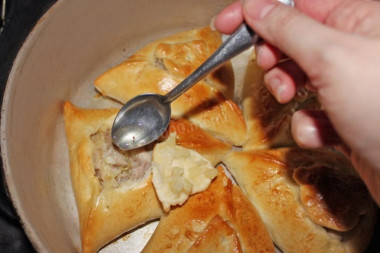
Take out the baking tray, remove the stoppers-pieces of dough. Pour the meat broth into the holes of the pies, about 2-3 teaspoons each and close the dough again. Send it to bake until ready for 15-30 minutes, see for yourself. To check readiness, open the plug and try.
Step 20:
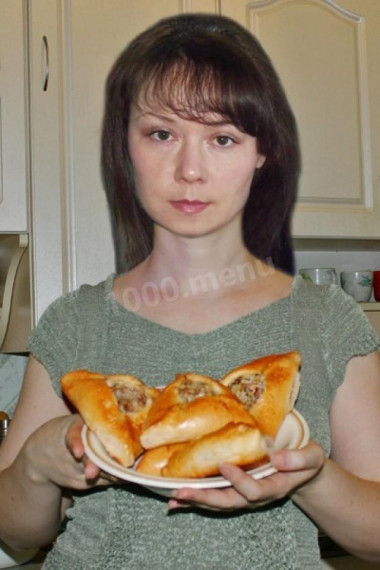
Bon appetit!
Step 21:
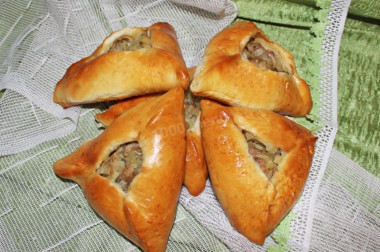
Broth is served to hot echpochmaks.
Step 22:
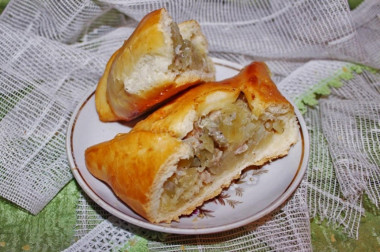
And this is how the echpochmak looks in the section.
Be prepared for the fact that you may need more or less flour than indicated in the recipe. Focus not on the amount of flour, but on the desired consistency of the dough. To avoid mistakes, read about flour and its properties!
Keep in mind that everyone's ovens are different. The temperature and cooking time may differ from those specified in the recipe. To make any baked dish successful, use useful information about the features of ovens !
The liquid in which yeast is bred should be pleasant to the touch, no higher than 40 degrees. Why is this important? In a warm environment, yeast is well activated, in a hot one it will die, and in a cold one it simply will not work. To avoid unpleasant surprises, check the yeast before mixing with the rest of the ingredients. Pour a little warm milk into a bowl, stir in the yeast. Cover the bowl with a kitchen towel and put it in a warm place without drafts for 10-15 minutes. During this time, a foam yeast cap should appear on the surface of the sponge. If this did not happen, then the fermentation process has not started (the yeast is overdue or spoiled). In this case, it is worth taking other yeast, otherwise baking will not work.
Caloric content of the products possible in the composition of the dish
- Onion - 41 kcal/100g
- Ripe potatoes - 80 kcal/100g
- Baked potatoes - 70 kcal/100g
- Mashed potatoes - 380 kcal/100g
- Boiled potatoes - 82 kcal/100g
- Potatoes in uniform - 74 kcal/100g
- Fried potatoes - 192 kcal/100g
- Whole cow's milk - 68 kcal/100g
- Milk 3.5% fat content - 64 kcal/100g
- Milk 3.2% fat content - 60 kcal/100g
- Milk 1.5% fat content - 47 kcal/100g
- Concentrated milk 7.5% fat content - 140 kcal/100g
- Milk 2.5% fat content - 54 kcal/100g
- Chicken egg - 157 kcal/100g
- Egg white - 45 kcal/100g
- Egg powder - 542 kcal/100g
- Egg yolk - 352 kcal/100g
- Ostrich egg - 118 kcal/100g
- Whole durum wheat flour fortified - 333 kcal/100g
- Whole durum wheat flour, universal - 364 kcal/100g
- Flour krupchatka - 348 kcal/100g
- Flour - 325 kcal/100g
- Granulated sugar - 398 kcal/100g
- Sugar - 398 kcal/100g
- Table margarine - 720 kcal/100g
- Cream margarine - 720 kcal/100g
- Milk margarine - 743 kcal/100g
- Low-fat margarine - 384 kcal/100g
- Margarine sandwich - 688 kcal/100g
- Margarine for baking - 675 kcal/100g
- Margarine diet - 366 kcal/100g
- Margarine bold 40% - 415 kcal/100g
- Margarine - 720 kcal/100g
- Salt - 0 kcal/100g
- Pepper - 26 kcal/100g
- Ghee - 892 kcal/100g
- Broth - 15 kcal/100g
- Dry yeast - 410 kcal/100g

